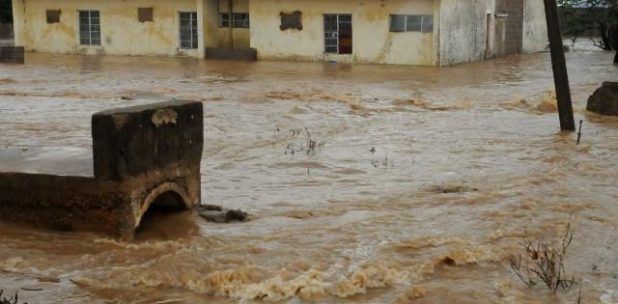Despite directly impacting our communities, health and livelihood, climate-related reports usually take a back seat to dominant news beats like politics and business. Climate Watch aims to ensure you never miss important stories on climate change and actions being taken towards limiting its impact.
Here is a round-up of last week’s climate stories:
- Experts have established a connection between climate change and cholera outbreaks, saying the rate of cholera outbreaks currently in Nigeria is a result of floods which is a climate change impact. Research has shown that the cholera-causing bacteria are mostly found in the faeces of an infected person and so experts believe it is easily transported by flood when it rains. Chukwumerije Okereke, a professor of global environmental and climate governance, told TheCable that the relationship between cholera and climate change is the change in rainfall patterns which has led to increased rainfall and a huge amount of flood which carry dirt and deposits into water bodies used by people for drinking and cooking. This eventually causes people to come down with the disease. Also, Emmanuel Chukwu, a laboratory analyst, said flood occurring during the rainy season serves as a means of transportation for the cholera virus by washing microorganisms from surfaces into water bodies. Get the full details here.
- The world received a stern warning last week on how much damage has been done to the earth. The new United Nations report released by the Intergovernmental Panel on Climate Change (IPCC) on August 09 showed that the damage done to the earth might be irreversible for hundreds and thousands of years. It also showed that unless there are immediate, rapid, and large-scale reductions in greenhouse gas emissions, limiting warming to close to 1.5°C or even 2°C will be unattainable. Additionally, the report projects that in the coming decades, climate changes will increase in all regions, stating that global warming of 1.5°C will cause increased heat waves, longer warm seasons, and shorter cold seasons. While 2°C of warming would cause heat extremes to reach critical tolerance thresholds for agriculture and health. The report warns that this would be catastrophic if drastic measures are not taken. Read more from this report here.
- With more flood predictions by the Nigeria Hydrological Agency, the National Emergency Management Agency (NEMA) in Ekiti has warned residents living close to riverine areas to move to higher and safer ground to avoid flood disasters in the coming months. During a visit to one of the areas, Olusegun Afolayan, NEMA head of operations in Ekiti urged the residents to relocate as the state might experience more flooding in the coming months. Some of the residents have already started relocating after heavy rains that cause the river to overflow its banks and submerged houses in Oke-Osun. Sunday Adebunmi, chairman of the State Emergency Management Agency (SEMA) in Ekiti, said the state government will work on dredging the river and improving the drainage systems in the community. Read more here.
- Flood incidences in Nigeria this year has caused families grief as more deaths keep being recorded from flood disasters. In Bauchi, five deaths were recorded last week after a heavy rainfall that lasted for over 20 hours on Tuesday. The incident affected seven villages, submerged farmlands, and destroyed crops. Samaila Jarma, the council’s chairman said the flood was caused by the overflow of water from the Jos river following the heavy rainfall. He said five corpses were recovered from the water in submerged areas, one out of the five corpses recovered was identified to be from one of the affected villages while the identity of the remaining bodies could not be established. He further said the council has set up a committee to assess the level of damage from the flooding. Read more here.
- Under its nationally determined contributions (NDCs), Nigeria committed to reducing its emissions by 20 percent without support but by 45 percent with international support. However, last week, Mohammad Abubakar, minister of environment, said Nigeria surpassed the 20 percent emission reduction target between 2016 and 2020. He said the country is also working to ensure that the 45 percent target set for 2030 is also achieved. He said a culmination of problems experienced by the country in 2016 showed that there was a need for immediate intervention in tackling the issue of climate change. He said the government has since put in a number of interventions to deal with the issue of climate change. He mentioned such interventions as the issuance of green bonds to generate money, solely for green projects. Raed here for more details.
Add a comment






